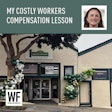Fair with gradually clearing skies.
That's the forecast for the 2010 economy from one business observer. And, after the stormiest year in anyone's memory, who can deny that a dose of even partial sunshine sounds good?
Maybe 2009 was tough, but as a business survivor, you can congratulate yourself on your hardiness and take steps to capitalize on a rebound. "The weak have given up and the biggest have been humbled," says consultant Bob Phibbs in Coxsackie, N.Y. "It's a new game for everyone."
Weathering the Storm
The best business news is that some key economic data now signal a broad move to positive territory. "The recession has ended and we are looking at a modest recovery in 2010," says Sophia Koropeckyj, managing director of industry economics at Moody's Economy.com, a research firm based in West Chester, Pa.
Economic health depends largely on trends in the Gross Domestic Product (GDP), the yearly total of all goods and services produced in the United States. GDP for 2010 is expected to rise at a modest 2 percent, according to Economy.com. That figure represents a rebound from the 2.5 percent decline expected when figures for 2009 are finally tallied.
While the GDP number for 2009 was pretty miserable, Koropeckyj notes that the economy actually saw 3 percent growth in the last six months of the year. "The rebound has been entirely due to the federal stimulus money," she says. "All these programs have kept a floor under the economy and spurred some consumer spending."
Indeed, the federal programs have been so important that Koropeckyj says there is a real risk of a return of recessionary trends if the programs are allowed to expire. "That possibility could be forestalled by extensions of a number of these programs—and we believe that will very likely occur."
Federal stimulus money should support a strengthening economy in the first half of 2010. As for the second half, Koropeckyj expects further economic strengthening from a rebound in the private sector.
Watching the Skies
Business owners are rightly concerned with low consumer confidence levels. "Most measures of consumer confidence are still very low," says Scott Hoyt, senior director of consumer economics at Economy.com. No secret why: Stubbornly high unemployment and a moribund housing market are key demotivators.
Unemployment, now hovering above 10 percent, is expected to grow. "We expect unemployment to peak at 10.3 percent by the middle of 2010 and will end next year no lower than about 10 percent," says Koropeckyj. "Peak to trough employment will decline by about 8.5 million, by mid- to late 2010. We do not expect a recovery in employment until 2013. Because of this, the industries most dependent on consumer spending will be the ones that recover the latest."
Although layoffs are moderating significantly, it will take awhile for consumers to get back on board. "At least through the first half of the year, consumers will be asking, 'Where will the money come from to spend?'" says Hoyt.
"People are still paying down their debt and there are no capital gains to realize. Interest rates are low and dividends are not increasing."
While that's enough to put a significant drag on things, there is rosier news in the housing area. "Housing prices are expected to keep falling for another few quarters, but the market in terms of construction and sales is close to bottoming out," says Koropeckyj. "Sales have inched up in large measure because of improved affordability and the sales of foreclosed homes at deep discounts."
Occasional Showers
Burned by the rapid expansion and subsequent crash of the last few years, business owners remain cautious of the future and careful about taking on risk.
For businesses large and small, credit remains a key problem area. "People are breathing sighs of relief that banking seems to be stabilized, but not enough credit is yet being given to small and medium sized enterprises," says Walter Simson, principal of Ventor LLC, a New Yorkbased management consultancy. Those businesses were often dependent on smaller finance firms that have been closed or merged with other companies, disrupting established credit channels; and, there is a new focus on quality in loan portfolios. "Some things that banks used to let slide are now large areas of concern," Simson says. "A lot of this stems from regulatory pressures."
Even credit card financing is problematic. "Many small businesses fund their operations on their credit cards, and that can pose problems as fees are increasing," says Marilyn J. Holt, a Seattle-based management consultant. "Even a small increase can have serious impact on your bottom line. So, you either have to raise your prices or accept smaller profit margins."
In many cases, credit card companies are lowering credit limits and beefing up bills with surprise charges. "If you use credit cards in your business, watch your bills for new fees and look for changes in payment due dates," says Holt.
Bright skies ahead
As we go into the first few months of 2010, watch for trends in consumer and business confidence. Both measures will be key factors in the pace of rebound.
"For their part, businesses are no longer cutting back on equipment and software purchases, but they are not expanding either," says Koropeckyj. "They have already begun to reduce the rate at which they lay off workers but they will not start hiring people until they see the economy has already embarked on a recovery. That should start to be apparent sometime in 2010."
Many business owners are troubled by uncertainty over government policy, says Smeltzer. "Where are we going to be left in terms of cap and trade? Health care reform? State and local tax rates? All those things have become almost monumental. If I don't know what my business costs are going to be I am not inclined to hire workers and make capital investments."
Here Comes the Sun
So how can you position yourself for a rebound? For starters, keep an eagle eye on your stockpile of merchandise, watch your market, launch new programs or products and provide content, such as newsletters, that customers don't have to buy.
"What we need to do more than anything is break out of the commodity trap," says Shep Hyken, a St. Louis-based management consultant. "Be a partner to your customers, and be more concerned with their success than making a quick dollar in a transaction."
By March, we should have a more solid feel for how 2010 will shape up, says Chicago-based consultant James Dion. "I think people will be surprised by how fast the recovery comes in 2010," he says.
Why? "Three words: 'Pent up demand.'"































